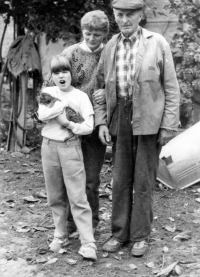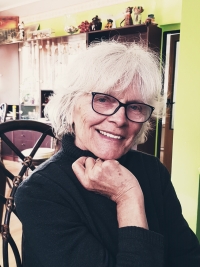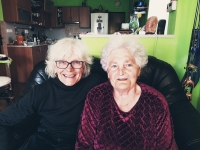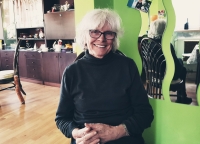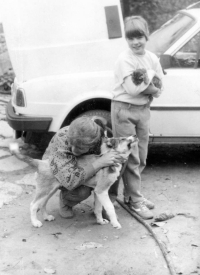When we crossed the border, we found ourselves in a completely different world

Download image
Jiřina Kroutilová, née Linhová, was born on 12 October 1937 in the village of Krupá Hranice in Volhynia, in what was then Poland, now western Ukraine. She comes from the large community of Volhynian Czechs there. Her father’s name was Karel Linha, her mother Emilie, née Hradecká. She had a sister Antonia, later married Divišová. The family moved to Czechoslovakia in 1947 as part of the post-war repatriation of Volhynian Czechs and settled in Temenice near Šumperk. Her mother died in 1956 of tuberculosis. She worked as a nurse all her life. In the 1960s she lived in Prague, and in 1967 she had the opportunity to travel to Canada to visit relatives. After the August 1968 occupation, she and her future husband František Kroutil settled in Switzerland, where she was living at the time of the interview (2019).
